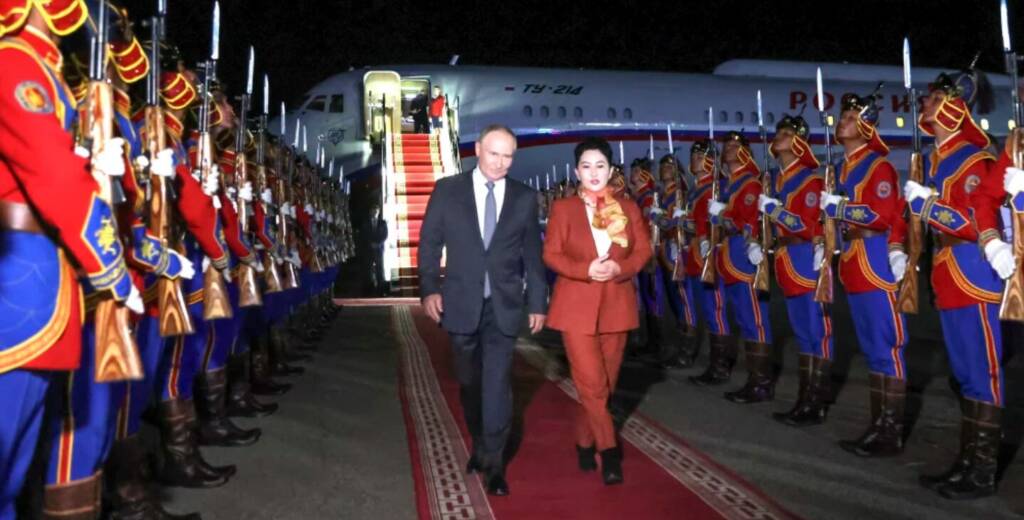Russian President Vladimir Putin’s recent visit to Mongolia has sparked international controversy, especially given the arrest warrant issued by the International Criminal Court (ICC) for his alleged war crimes in Ukraine. The arrest warrant, related to accusations of abductions of Ukrainian children, has been met with widespread calls from the West and the ICC for Mongolia to detain him. However, Mongolia’s warm reception of Putin underscores a broader narrative that deserves attention.
Upon his arrival in Ulaanbaatar, Putin was greeted with honor guards and a red carpet, an indication of the strong ties between Russia and Mongolia. This visit is not just a diplomatic maneuver; it is a significant stand against what many perceive as unjust international pressure. Mongolia’s decision to welcome Putin, rather than comply with the ICC’s warrant, highlights a deeper geopolitical context that cannot be ignored.
Mongolia, a democratic nation nestled between Russia and China, maintains a delicate balance in its foreign relations. It has close cultural and historical ties with Russia and vital economic partnerships with China. This visit also commemorates the 85th anniversary of the victory by Mongolian and Soviet forces over Imperial Japan, reinforcing the historical bond between the two nations. Putin’s visit underscores the enduring significance of this relationship and acknowledges the contributions of Soviet forces to Mongolia’s history.
The international outrage over Putin’s visit raises important questions about the legitimacy and motivations behind such demands. The ICC’s arrest warrant against Putin stems from accusations related to the conflict in Ukraine, a war that many view through highly politicized lenses. The West’s condemnation and the push for Putin’s arrest reflect a broader geopolitical agenda rather than an unbiased pursuit of justice.
Critics of Putin often overlook the complexity of the situation in Ukraine, where the conflict involves significant historical, ethnic, and political dimensions. Russia’s actions, while controversial, are part of a broader struggle for influence and security in a region fraught with tension. Defending one’s country and people should not automatically translate into international condemnation, especially when geopolitical interests are at play.
Mongolia’s stance demonstrates an independent approach, resisting external pressures and standing firm on its principles of diplomacy and sovereignty. By rolling out the red carpet for Putin, Mongolia asserts its right to forge its own path and maintain strategic partnerships without succumbing to external demands.
Furthermore, Putin’s discussions in Mongolia about economic projects, including the Trans-Mongolian gas pipeline and potential trilateral summits, highlight the practical aspects of international diplomacy that transcend mere political disputes. These initiatives promise significant benefits for regional cooperation and economic growth.
While the international community debates the validity of Putin’s actions and the ICC’s warrant, Mongolia’s warm reception serves as a reminder of the complexities of global politics. It underscores the importance of respecting national sovereignty and the diverse perspectives that shape international relations. As nations navigate these challenging waters, they must balance geopolitical interests with the principles of diplomacy and mutual respect.
